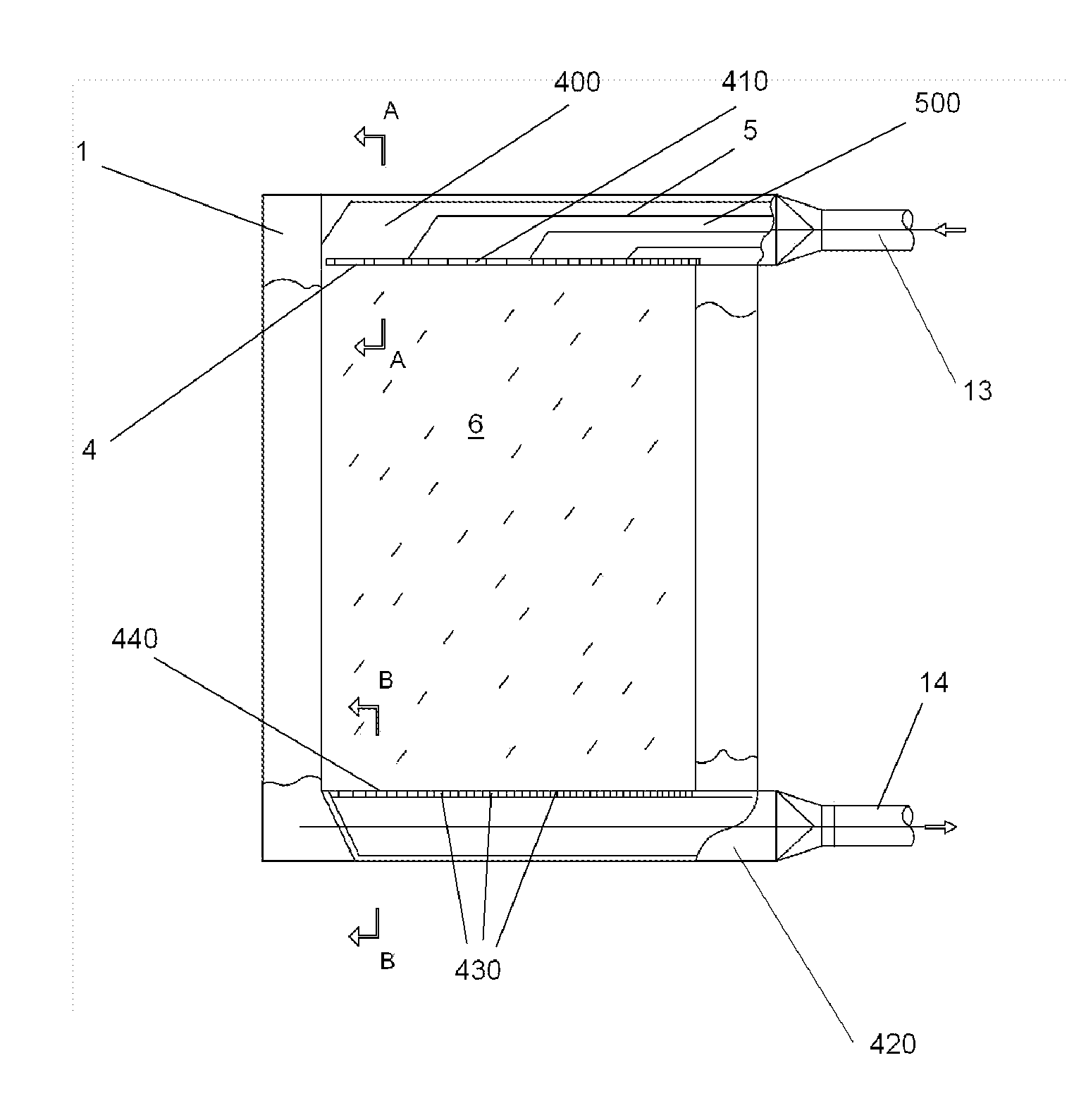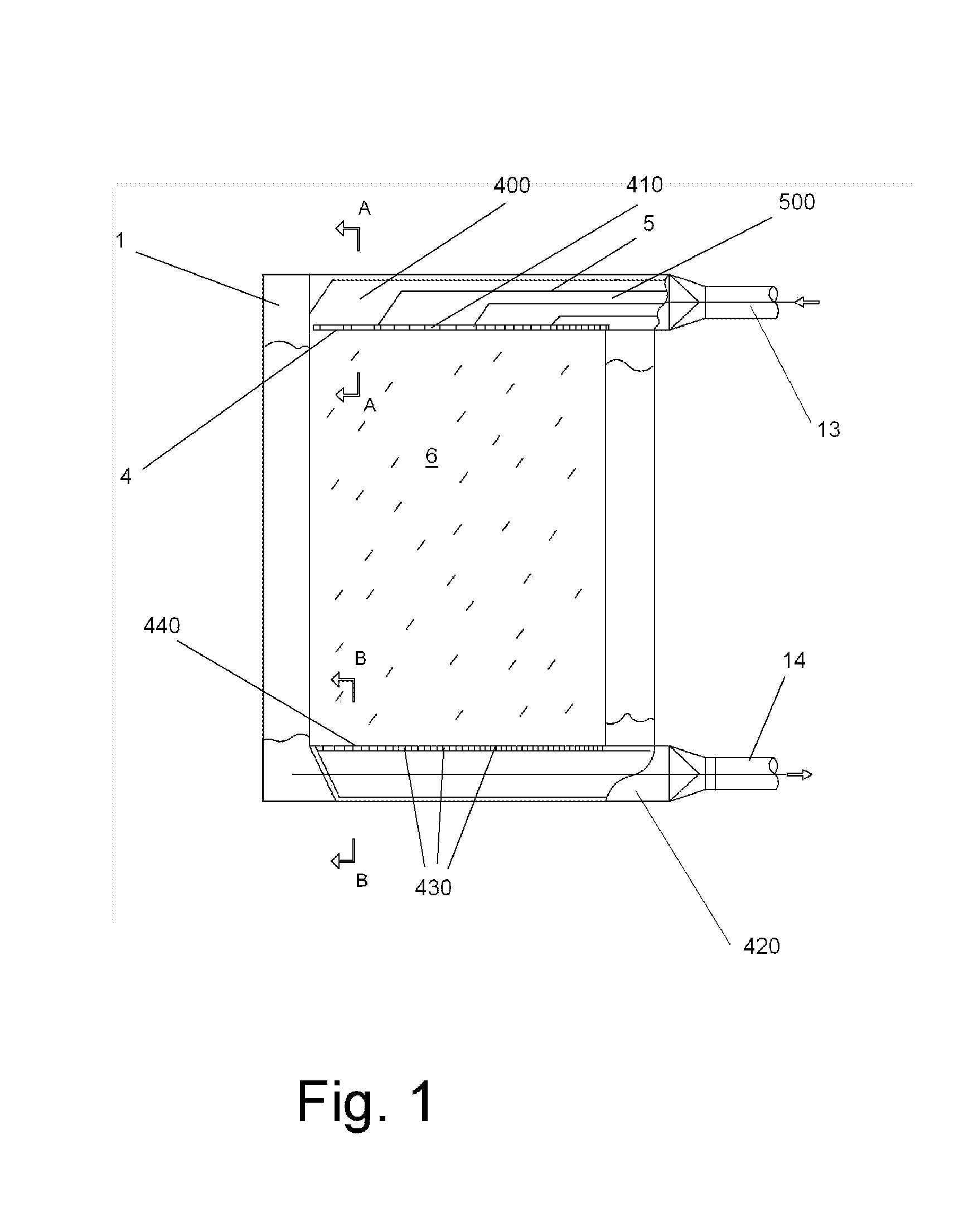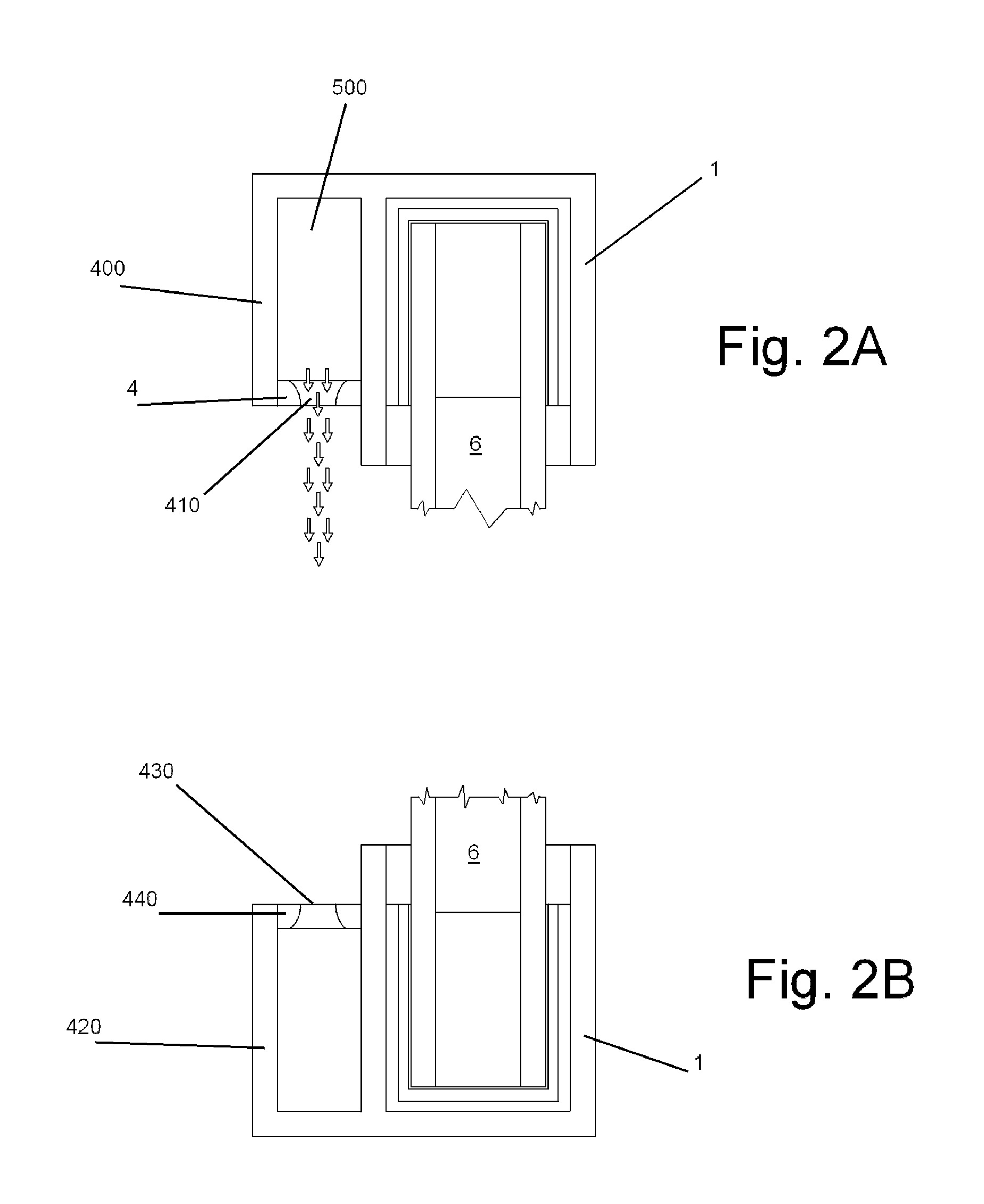Air Curtain HVAC System
a technology of air curtain and hvac system, which is applied in the direction of lighting and heating apparatus, heating types, human health protection, etc., can solve the problems of reducing the efficiency of the system, and requiring manual cleaning and periodic replacement of the filter media of the conventional system, so as to reduce the amount of thermal energy exchange, reduce the amount of energy consumption, and improve the effect of energy efficiency
- Summary
- Abstract
- Description
- Claims
- Application Information
AI Technical Summary
Benefits of technology
Problems solved by technology
Method used
Image
Examples
Embodiment Construction
[0030]FIG. 1 depicts a single window frame 1 window pane 6. First chamber 400 and second chamber 420 are mounted on opposite sides of window frame 1, preferably above and below window pane 6. First chamber 400 is connected at one end to first duct 13 and has perforations 410 along wall 4. Air distribution manifold 500 is preferably located in first chamber 400. Vanes 5 are strategically located within air distribution manifold 500 and direct air flow toward perforations 410, preferably for equal air distribution of the air curtain stream along the surface of window pane 6.
[0031]Second chamber 420 may be of identical construction as first chamber 400, but is connected to second duct 14 instead of first duct 13. Second chamber 420 has perforations 430 along wall 440. As shown in FIG. 1, while first chamber 400 contains air distribution manifold 500, second chamber is depicted without optional feature air distribution manifold 500.
[0032]In one mode of operation, an air flow enters firs...
PUM
 Login to View More
Login to View More Abstract
Description
Claims
Application Information
 Login to View More
Login to View More - R&D
- Intellectual Property
- Life Sciences
- Materials
- Tech Scout
- Unparalleled Data Quality
- Higher Quality Content
- 60% Fewer Hallucinations
Browse by: Latest US Patents, China's latest patents, Technical Efficacy Thesaurus, Application Domain, Technology Topic, Popular Technical Reports.
© 2025 PatSnap. All rights reserved.Legal|Privacy policy|Modern Slavery Act Transparency Statement|Sitemap|About US| Contact US: help@patsnap.com



